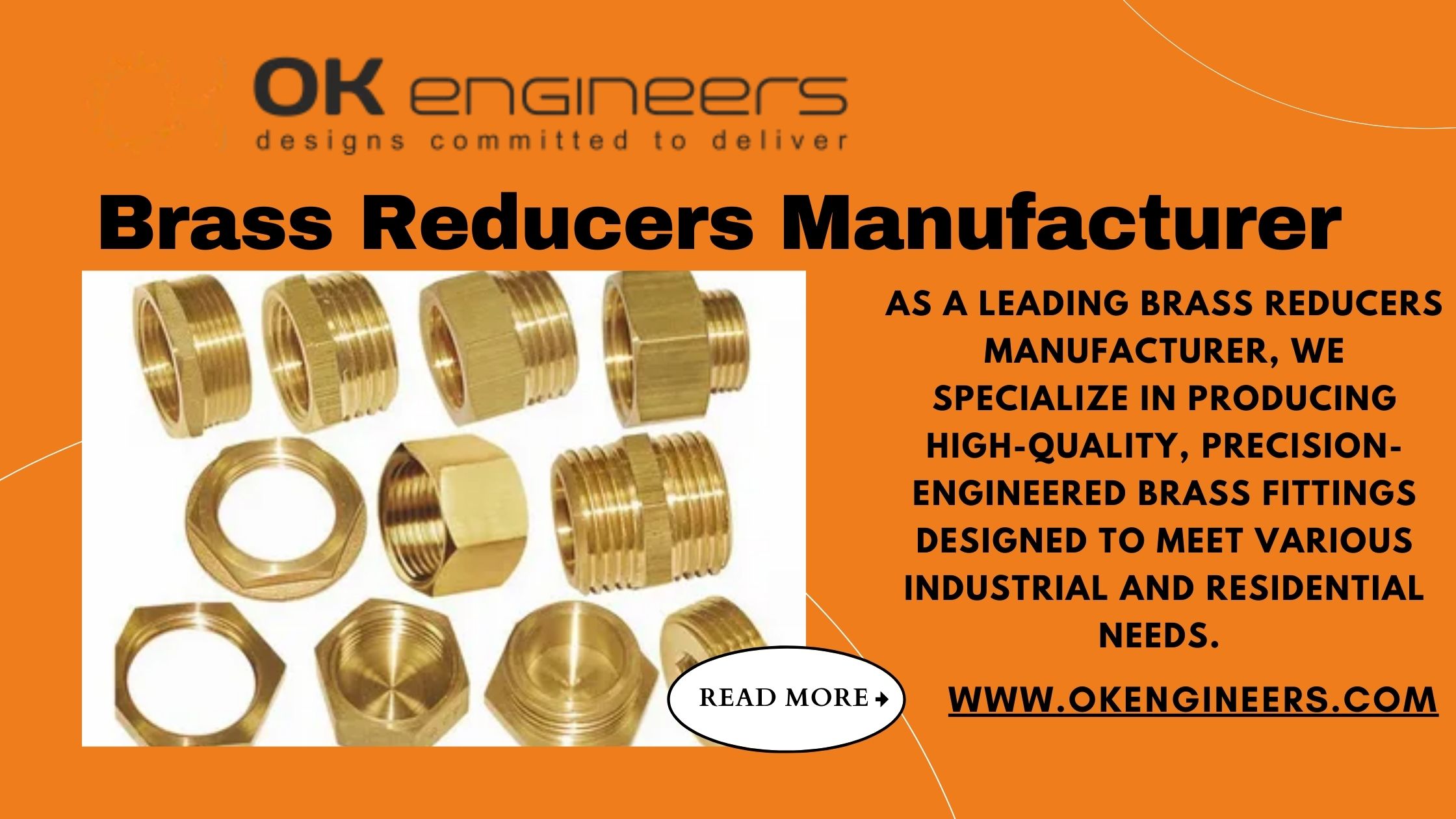 Conversion-Focused Landing Pages – More Leads, Less Bounce!
Conversion-Focused Landing Pages – More Leads, Less Bounce!
Understanding Brass Precision Parts: Key Features, Applications, and Advantages
Written by okengineers » Updated on: June 17th, 2025

Brass Precision Parts have become integral components in various industries, ranging from automotive to aerospace, electronics, and plumbing. Known for their exceptional durability, corrosion resistance, and machinability, brass precision parts offer a unique combination of properties that make them ideal for numerous applications. This blog delves into the significance of brass precision parts, their key features, applications, and the advantages they bring to various industries.
What Are Brass Precision Parts?
Brass precision parts are components made from brass, a metal alloy primarily composed of copper and zinc. These parts are manufactured with high precision, ensuring they meet specific tolerances and dimensions critical for their intended use. The versatility of brass allows for various manufacturing processes, including machining, casting, and forging, to create parts that serve a wide range of functions.
Key Features of Brass Precision Parts
Excellent Machinability: Brass is known for its superior machinability compared to other metals. This characteristic allows manufacturers to produce intricate and complex designs with tight tolerances, making brass precision parts ideal for high-performance applications.
Corrosion Resistance: Brass exhibits excellent resistance to corrosion, particularly in moist environments. This property makes it suitable for use in plumbing fixtures and other applications exposed to water and moisture.
Ductility and Strength: Brass is both strong and ductile, allowing it to withstand mechanical stress without breaking or deforming. This strength is essential for parts that must endure harsh conditions and loads.
Good Thermal and Electrical Conductivity: Brass's conductive properties make it a popular choice for electrical components and connectors, ensuring efficient performance in electronic applications.
Aesthetic Appeal: The attractive golden-yellow hue of brass enhances the aesthetic value of products, making it a preferred choice for decorative items and architectural fittings.
Applications of Brass Precision Parts
Brass precision parts find applications across a multitude of industries, including:
1. Automotive Industry
In the automotive sector, brass precision parts are used in various components, such as connectors, fittings, and valves. Their durability and resistance to corrosion ensure reliable performance in engine and transmission systems.
2. Aerospace Industry
The aerospace industry demands components that can withstand extreme conditions. Brass precision parts are used in aircraft fittings, fasteners, and hydraulic systems, providing strength and reliability while minimizing weight.
3. Electronics and Electrical Components
Brass is widely used in the manufacturing of connectors, terminals, and housings for electronic devices. Its excellent conductivity enhances performance while ensuring longevity and reliability in electrical applications.
4. Plumbing and HVAC Systems
Brass precision parts are essential in plumbing applications, including faucets, valves, and fittings. Their resistance to corrosion and ability to handle high pressure make them ideal for both residential and commercial plumbing systems.
5. Machinery and Equipment
In industrial machinery, brass precision parts play a crucial role in various applications, from gears to valves. Their strength and machinability allow for efficient production and reliable performance under heavy loads.
Advantages of Using Brass Precision Parts
The choice of brass precision parts over other materials comes with several advantages:
1. Cost-Effectiveness
While brass may have a higher upfront cost than some alternatives, its durability and long lifespan often lead to lower overall costs in maintenance and replacement, making it a cost-effective choice.
2. Customization Options
Manufacturers can easily customize brass precision parts to meet specific requirements. This flexibility is crucial for industries that require tailored solutions for unique applications.
3. Sustainability
Brass is a recyclable material, which aligns with sustainable manufacturing practices. Using recycled brass reduces the demand for raw materials, contributing to environmental conservation.
4. Enhanced Performance
The combination of strength, corrosion resistance, and thermal conductivity ensures that brass precision parts perform reliably under a variety of conditions, enhancing the overall efficiency of the systems they are part of.
Conclusion
Brass precision parts are vital components across multiple industries due to their unique properties and versatility. With excellent machinability, corrosion resistance, and aesthetic appeal, these parts are indispensable in applications ranging from automotive to aerospace, electronics, plumbing, and machinery. As technology continues to evolve, the demand for high-quality brass precision parts is expected to grow, ensuring their place as a cornerstone in modern manufacturing. Understanding the characteristics and benefits of brass precision parts allows manufacturers and engineers to make informed decisions, ultimately leading to better performance and reliability in their products.
Note: IndiBlogHub features both user-submitted and editorial content. We do not verify third-party contributions. Read our Disclaimer and Privacy Policyfor details.
Copyright © 2019-2025 IndiBlogHub.com. All rights reserved. Hosted on DigitalOcean for fast, reliable performance.













